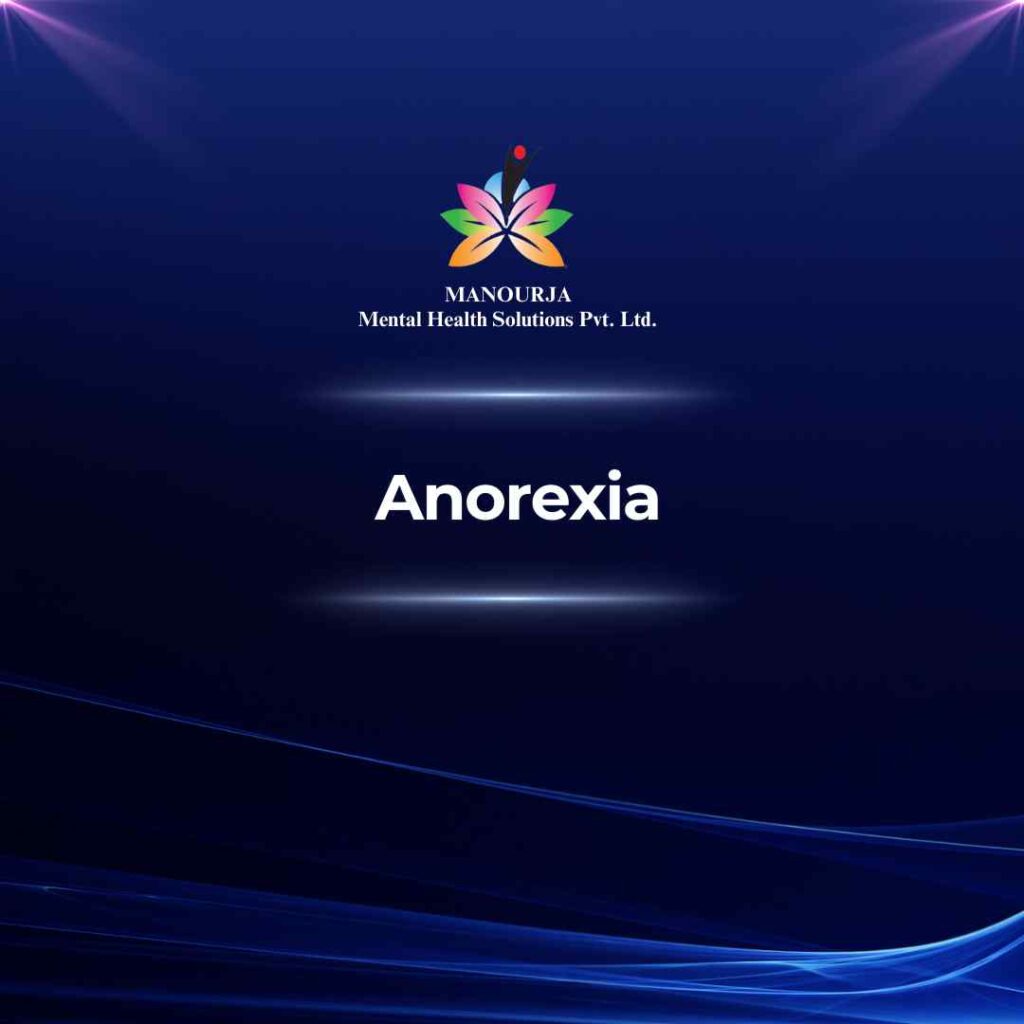Anorexia

Anorexia, or anorexia nervosa, is an eating disorder characterized by an intense fear of gaining weight and a distorted body image. Individuals with anorexia often restrict their food intake severely, leading to significant weight loss and nutritional deficiencies. Despite being underweight, they may continue to perceive themselves as overweight and engage in behaviors aimed at further weight loss.
Anorexia as a Sign and Symptom of Mental Illness
Anorexia is a complex mental illness with various psychological, emotional, and physical symptoms. Key features of anorexia include:
- Severe Caloric Restriction: Intentional restriction of food intake, often leading to rapid and extreme weight loss.
- Fear of Weight Gain: Intense fear of gaining weight or becoming fat, even when underweight or emaciated.
- Distorted Body Image: Perceiving oneself as overweight despite being significantly underweight, leading to a relentless pursuit of thinness.
- Preoccupation with Food and Dieting: Constantly thinking about food, calories, and weight, and engaging in restrictive eating habits.
- Physical Complications: These can include malnutrition, dehydration, electrolyte imbalances, cardiovascular problems, and organ damage.
Mental Illnesses Associated with Anorexia
Body Dysmorphic Disorder (BDD):
- Individuals with BDD may exhibit symptoms similar to anorexia, with an intense preoccupation and distress about perceived flaws in appearance, often focusing on weight and body shape.
- Anorexia often co-occurs with depression, as individuals may experience feelings of worthlessness, hopelessness, and low self-esteem, exacerbated by their distorted body image and disordered eating behaviors.
Obsessive-Compulsive Disorder (OCD):
- Some individuals with anorexia may display obsessive-compulsive tendencies related to food, weight, and body image, such as rigid dietary rules, compulsive weighing, or ritualistic behaviors around mealtimes.
- Anxiety disorders, including generalized anxiety disorder and social anxiety disorder, commonly coexist with anorexia, as individuals may experience heightened anxiety around food, social situations, or body image concerns.
Post-Traumatic Stress Disorder (PTSD):
- Traumatic experiences, such as childhood abuse or bullying, can contribute to the development of anorexia and exacerbate symptoms of PTSD, including hypervigilance, avoidance behaviors, and intrusive memories.
Borderline Personality Disorder (BPD):
- Anorexia is more prevalent among individuals with BPD, who may use disordered eating behaviors as a way to regulate emotions, cope with distress, or gain a sense of control.
Recognizing anorexia as a multifaceted mental illness is crucial for providing comprehensive treatment and support. Treatment typically involves a multidisciplinary approach, including psychotherapy (such as cognitive-behavioral therapy), nutritional counseling, medical monitoring, and medication management, tailored to address the individual’s physical and psychological needs.
At MANOURJA, we believe in the transformative power of counseling. Our experienced therapists offer a safe and supportive space where you can explore your thoughts, emotions, and challenges. Through personalized counselling sessions, we’ll work together to develop coping strategies, build resilience, and achieve lasting positive change. Discover the path to a healthier, happier you with MANOURJA counselling services.
MANOURJA Rehabilitation Services
At MANOURJA, we’re dedicated to helping you in rebuild your life, after difficult times. Our rehabilitation services focus on understanding what you need to move forward, whether you’re recovering from addiction, trauma, or any psychological – social challenges. We create personalized plans, that are all about helping you, regain your strength and find hope again. With a caring team by your side, you’ll have the support to make real progress and take steps toward a brighter, healthier future.
